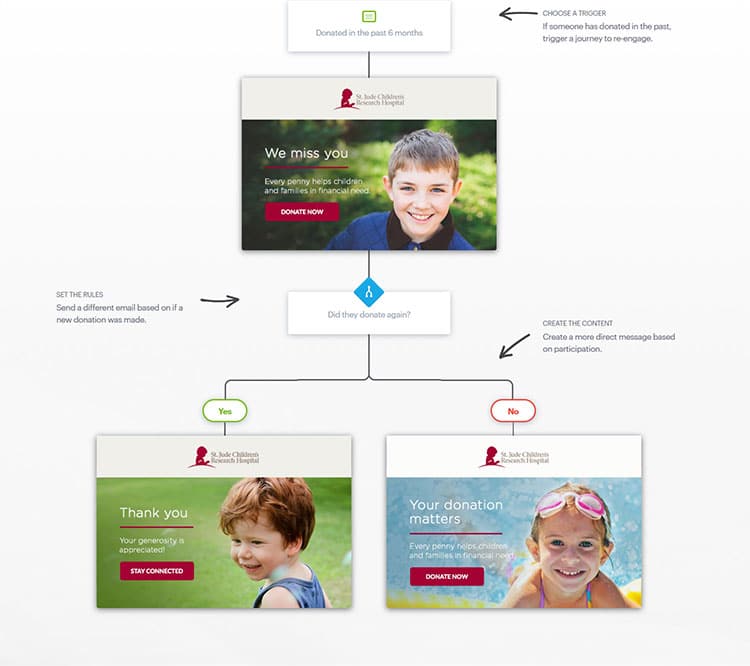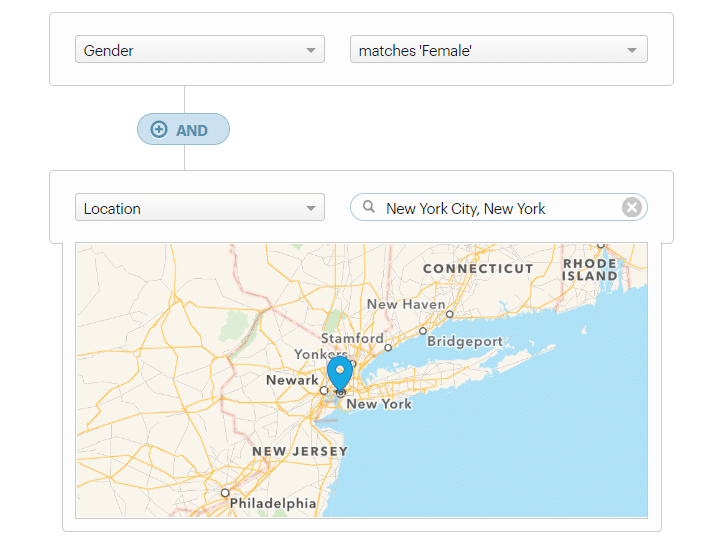Email marketing automation allows you to provide personalized content for your subscribers more efficiently than ever before. Personalized content generates 18x more revenue than generic content, simply because it’s relevant to your subscribers.
Read on to discover some of the best tools for email marketing automation and how to put them to good use.
Personalized content generates 18x more revenue than generic content.
What are the best tools for email marketing automation?
The tools below can help you integrate data from multiple sources so you can create personalized content for your subscribers in a timely and efficient manner.
1. Drag-and-drop email editor
A drag-and-drop email builder will make sure that your emails are always optimized for mobile devices. Did you know that over half of all emails are opened on mobile?
You can try to track the devices your subscribers use and design unique emails for each email client, but integrated responsive design with a drag-and-drop customizable campaign builder takes out the guesswork.
Source: Campaign Monitor
2. Customer journeys and triggered event emails
Customer journeys and triggered event emails will gently guide your new subscribers through a marketing cycle to help them learn about your brand and how you can help them.
You can include welcome emails, timed promotions, birthday emails, campaigns based on activity like browsing behavior, and much more.
Consider the following example of how a customer journey works with Campaign Monitor.
Source: Campaign Monitor
3. Data for segmentation
With so much data at your fingertips, it’s never been easier to break your subscriber list up into different groups based on demographics and other information. From there, you can develop unique campaigns for each group.
You can segment your list based on qualities like:
- Geolocation
- Age
- Gender
- Interests and preferences
- Signup location
- Occupation
- Marital status
- Whether or not they’re a parent along with the children’s age, if applicable
Segmentation gives you plenty of opportunities to design unique content that your subscribers will find interesting and be more likely to engage with.
Here’s an example of how you can start segmenting your subscriber list with Campaign Monitor.
Source: Campaign Monitor
4. Integration capability
An email marketing campaign shouldn’t act alone. It’s important to integrate data and marketing campaigns from other sources to provide your subscribers with well-rounded email marketing content.
Integrating data from other sources like Google Analytics will also help you see how your campaigns are performing and where you can improve.
How to measure if your tools are working
The best tools for email marketing automation are meant to help you improve your metrics and bottom-line conversions.
Email marketing is an excellent way to improve brand recognition, build customer trust, engage current customers, and form a one-on-one relationship with your audience. To measure if it’s “working” or not, you’ll need to examine a few important metrics.
- Deliverability: Are subscribers actually receiving your emails or are there technical kinks you need to work out?
- Open rates: Are your subject lines interesting enough to get people to actually open your emails?
- Click-through rates: Is your copy conversational and engaging? Is it inspiring readers to take action?
- Website traffic and social media: Are subscribers visiting your website and following your brand on other channels?
- Transactions: Are your subscribers converting into customers and are your current customers coming back to make additional purchases?
Does it really matter?
Choosing the best tools for email marketing automation is important for reaching your goals. People expect personalized and timely content from the brands they love. The easiest and most efficient way to achieve this is with automated content based on data you’ve collected—and tools can help make that happen. Without appropriate tools, it’s nearly impossible to put your data to good use with targeted campaigns.
What now?
Now that you understand how tools can help you achieve your goals, you can start utilizing automation and implementing triggered campaigns. Do some research about your audience and set your goals. After that, you can start creating personalized content.
Are you ready to jump into personalized customer journeys? Check out our customer journey guide to get started.


